Constant Questions: Yeo Yann Yann talks about Acting and Wet Season
As the COVID-19 pandemic causes film festivals around the world to forgo red carpet premieres for online editions, Trevor Hogg revisits the 44th Toronto International Film Festival with a series of interviews…
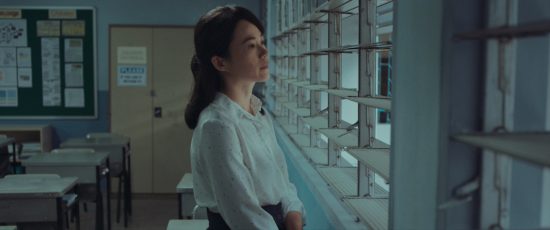
As we sit together during the 44th Toronto International Film Festival to discuss her performance as a married teacher desperately trying to have a baby in Wet Season, Yeo Yann Yann drapes a sweater over herself in an effort to get warm. “I’m a girl from the tropics!” she laughs. “The whole year the lowest might be 27 Celsius [in Singapore] and the highest 32.” The path of becoming a renown actress was profoundly shaped by late Chinese playwright, theatre director, and arts activist Kuo Pao Kun. “In a way the theatre trained me to not to give up on things that I don’t understand. My mentor has always reminded us to search for it. Always question the things that you don’t understand and question yourself. When I first had the chance to act in films, I couldn’t watch myself. I found myself to be so exaggerated. On my fifth or seventh film I realized for first time I could watch myself. You start to think what is behind it. Is it a technical thing? One of the biggest realizations that I had is a lot of the emotions are internalized in film because the camera is the audience. When we talk about being subtle it doesn’t mean that you’re cold inside. The emotions do not change whether you’re in theatre or film. I would like to let you know on the stage because you’re faraway. But when you’re so close to me I cannot hide it from you.”
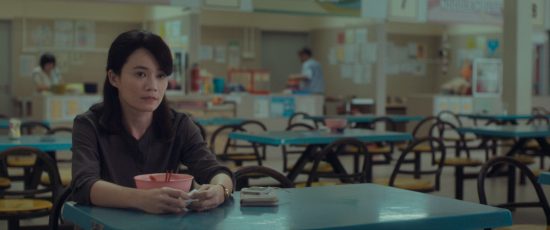
Emotions are found through physical research and personal experience. “It’s usually both,” remarks Yann Yann. “I always believe that every human being has 100 colours. Its just which colour is more obvious. When you understand yourself then you will be able to understand the character more. I had to research the medical side and talk to people who wanted to have children but couldn’t. One of the biggest things that I did was to inject myself.” I admit to some confusion to the opening scene when Ling injects herself inside of a parked car as my initial thought was of her being a drug addict. “Not in Singapore!” she chuckles nervously. “It’s very dangerous to be a drug addict and be so open about it! After I talked to the doctor his advice to me is to inject myself before we start filming. I spent half of my time every day before I go out injecting myself at home. I think that’s brutal. As a woman I felt it’s crazy. But people are willing to do that. The pain that they have to endure to have another life is so ironic. It’s supposed to be beautiful and happy but is actually a lot of pain. Asian women are trained to endure whatever comes to you, to take in the sufferings. We’re almost like a martyr. It’s like a Chinese teaching. You shouldn’t show your emotions and embarrass others. This is what I believe in for Ling sometimes.”

When asked what it would be like to meet Ling, Yann Yann responds, “She would be a gentle person and very approachable. When Ling in thought she is in deep thought. To her students she is a warm person. Warmth is something I would feel if I was to meet her on the street.” A painful moment to watch is when Ling has to wash her partially paralyzed father-in-law (Yang Shi-bin). “That’s a reality. Why is it always in the woman’s hands? Even though he’s my father-in-law I take care of him like my father. In my own context, if anything happens to our parents usually it’s the daughter who takes up the job of being the carer. Ling has to do all of these things. It’s almost like when you have to take care of a child. It’s usually the woman who has to make the sacrifice. He also built the relationship with her. It’s in my blood. I took care of my mother and father in the last stage of their lives. It’s something I must do. Don’t cringe! We always want our parents to never end. I also have male friends who took care of their parents at the last stage of their life; that’s something that most adults have to go through now as the population is getting older. In the past people had many children who would be able to take turns; however, now we only have one child. I don’t want to burden my daughter but I might have to if anything happens to me.”
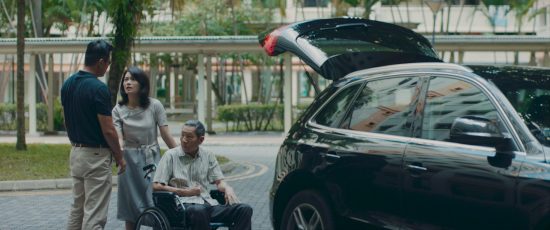
Being reunited with Koh Jia Ler was strange considering the nature of their roles for Yann Yann. “We had a group of talented actors. I was impressed with everybody’s instincts. especially of my young co-actor Koh. We played mother and son before in Ilo Ilo. Now we are teacher and student. I’m almost a mother and lover to him. I was so surprised and happy that Koh still kept his pure instinct from when he was 11-years-old when I met him onset. I envy Koh. How did he do that? I’m jealous!” It was important for the audience to remain sympathetic with Ling despite the affair. All of the parts of her life are crumbling down. That’s the most vulnerable time for her. The whole film is mostly on this woman’s journey. Whether it’s the main point is to get that relationship I wouldn’t agree to that. It’s part of her journey at a time that she is able to breakthrough her own shell and go on with her own life.” Wet Season was also a reunion with writer-director Anthony Chen. “Since my first experience with Anthony on Ilo Ilo I know him to be a meticulous director. Anthony is one of those who are so concerned that if you change anything that he thinks. This time I’m trying to get even closer to his image rather than what I imagine Ling to be or what I decided Ling to be. When we first started filming, I was trying to input a lot more and as time past then my decision was to go with the flow. Just risk yourself every day. This is why almost every night after the shoot I was crying.”
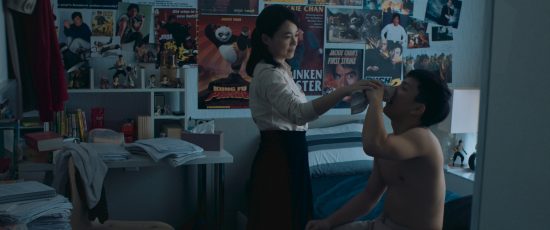
Shaking off characters is not easy even after the movie is completed. “I can’t!” admits Yann Yann. “I would love to. It’s very hard this film. Even after filming it took me half a year to realize that I’m still living in a way that Ling was feeling. Then one day I had this weird experience where I suddenly felt that Ling was leaving. It was like this is supernatural! It was something that I never felt before. I was crying so hard because, ‘Oh my god she’s leaving! I don’t want her to go.’ I said that. ‘You don’t want her to go. Why?’ I should ask myself, ‘Why don’t you want her to go?’ But she must go. That was all my own conversations with myself. It was like this is a bit crazy.” The highest number of takes for her was 33. It does make me question myself. ‘What have you’ve been doing for the past 20 years as an actor!? How did you get there? What happened to you? Are you okay?’ One side of it I’m sad about. The other side of it I’m happy about it. Because after 20 years there are more questions surfacing for yourself. I want to act until I’m 90 if I have the energy. I will be ecstatic if at 90 years-old I still have questions. Where did I gather all of this courage to take so much risk for myself? Am I crazy? It’s a great process for me.”
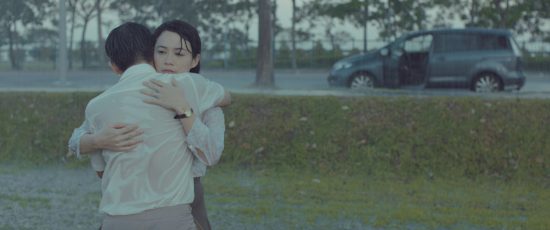
Acting in the rain was hard. “It was quite cold! Agony! Agony!” laughs Yann Yann who won Best Leading Actress at the 2019 Taipei Golden Horse Film Festival and Awards for her performance as Ling. “The biggest challenge is to be there every day because Ling doesn’t have much of a window to release emotions and that’s painful for me as an actor. She is so supressed that I felt vulnerable every day. I felt so sad for her. I can’t do anything for her.” Having a camera in the backseat of the car while she was driving was stressful. There were a lot of technical things that I had to take of. Firstly, I have to drive! One day I had to stop at a certain point. After the shoot I told Anthony, ‘The next time you need a stunt driver call me. I can hit any point any time!’” Yann adds, “I like the scene when my father-in-law passed away. I have a dream of holding a child. Then I saw my father-in-law passed away. I literally had the biggest breakdown for the film. Woohoo! I can finally release my emotions a little bit!”
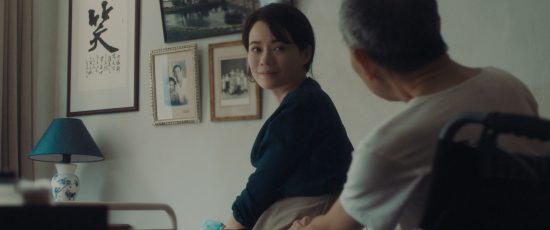
https://www.youtube.com/watch?v=sSgt6AcvDnY&feature=emb_title
Special thanks to Yeo Yann Yann for taking the time to be interviewed. For more information read our conversation with Anthony Chen and visit the official website for Giraffe Pictures.
Trevor Hogg is a freelance video editor and writer who currently resides in Canada; he can be found at LinkedIn.
Next PostPrevious Post(adsbygoogle = window.adsbygoogle || []).push({});









